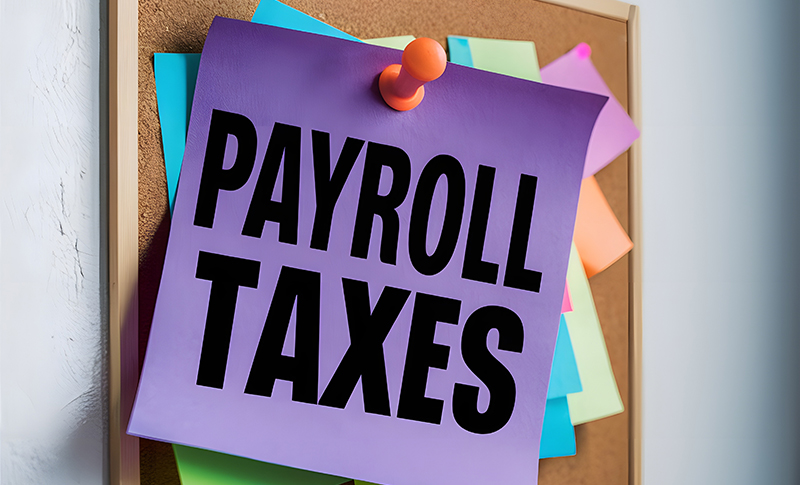Can step-up basis be claimed on a home you never lived in?
April, 08 2024 by Jean Lee Scherkey, EA
Two siblings were listed on the title of a home with their mother, as they lived nearby. She died several years later, and the siblings sold the home and distributed the funds to the other siblings. They did not help buy the home and never lived there. Are the siblings still able to claim the step-up basis on the value of the home when they report the sale on their returns? Are the two siblings liable for the gain, whereas the other siblings have no worry? How would they enter the sale on their tax forms? The two siblings received a Form 1099-S.
-Jason, Utah
Dear Jason,
Thank you for your questions. Whether the loved one who passed is a family member or friend, saying farewell is never easy. Compound that goodbye with the stress of taxes, and you have a potentially overwhelming situation. There is a lot to unpack from your question submission. Sometimes, the best way to handle a complicated situation is to take it one step at a time.
Based on the information and questions you posed, it appears that a woman (I am not sure if you are related to the mother or siblings in the question) owned and lived in a home until she passed. Several years before her passing, she added two of her children to the title of her home. The siblings that were added to the home's title did not contribute any money to the home's purchase, and they never lived there. After their mother's passing, the siblings sold the home and divided the proceeds among their other siblings. Now, there are several questions surrounding the sale of the home, how the sale is reported on the siblings' income tax returns, and the consequences of dividing the proceeds from the sale of the home among the rest of the siblings.
Because each of the siblings received a Form 1099-S and there was no mention of anyone else owning an interest in the home, it seems likely that when the mother added the children to the home's title, the title was held in joint tenancy. Generally, with joint tenancy, each owner has an equal interest in the property. When one of the owners dies, the remaining owners automatically receive an equal share of the deceased owner's interest. Furthermore, the interest inherited by the surviving owners receives a step-up in basis as of the date the deceased owner passed.
Generally, for unmarried joint tenants, when the first joint tenant passes away, the entire value of the property is included in the gross estate of the one who died. There is an exception to this rule. If the surviving joint tenant(s) can provide documentation showing the amount they contributed to the purchase of the property, then that amount is not included in the deceased tenant's estate. Let's look at an example:
Maggie and Lynn are friends who purchased a home together as joint tenants. When they purchased the home, Maggie contributed 30% of the purchase price and Lynn contributed the remaining 70%. Given the home's purchase price was $200,000, Maggie's basis in the home was $60,000 (30% of $200,000), and Lynn's basis was $140,000 (75% of $200,000). Five years later, Maggie passed away suddenly. Because Lynn could show that she contributed 30% ($60,000) of the purchase price, only 30% of the fair market value as of the date Maggie passed was included in her gross estate. On the day Maggie died, the home's fair market value was $300,000. Therefore, as of the date she passed, Maggie's half of the home was valued at $90,000 (30% of $300,000). Because Maggie and Lynn owned the home as joint tenants, Maggie's half of the property automatically passed to Lynn. Lynn's new basis in the home is $230,000, calculated as follows:
| Lynn's original basis (70% of $200,000) | $140,000 |
| Basis of interest acquired from Maggie (30% of $300,000) | $90,000 |
| Lynn's new basis | $230,000 |
What would have happened if Lynn could not recall how much she originally contributed to the purchase of the home? If Lynn had not remembered how much she had provided to purchase the home, then 100% of the home's value as of the date Maggie passed would have been included in Maggie’s gross estate. Lynn's new basis in the property would equal the amount that was included in Maggie's estate, which would have been $300,000.
We know that neither of the children who inherited an equal share of their mother's home contributed to the purchase price. Considering this, 100% of the home's fair market value as of the date the mother passed away should have been included in her gross estate. Since joint tenants hold an equal interest in the property they own, each sibling will have a basis in the home equal to one-half of the property's fair market value when the mother passed.
 For illustrative purposes, let's assume that when the mother passed away, the home's fair market value was $450,000. Since 100% of the home's value would have been included in the mother's gross estate, each sibling would receive an equal share of the home and have a basis of $225,000. Several months after the mother passed, the siblings sold the home for $500,000 and paid $15,000 in selling expenses. Each sibling would report the sale of their one-half interest in the property on Form 8949, Sales and Other Dispositions of Capital Assets and Schedule D, Capital Gains and Losses. Each sibling would report $250,000 as the sales price of their one-half interest of the home, a basis of $225,000, and one-half of the deductible selling expenses of $7,500 as an adjustment to the net gain or loss. In this case, each sibling would have a reportable net gain on the sale of the home calculated as follows:
For illustrative purposes, let's assume that when the mother passed away, the home's fair market value was $450,000. Since 100% of the home's value would have been included in the mother's gross estate, each sibling would receive an equal share of the home and have a basis of $225,000. Several months after the mother passed, the siblings sold the home for $500,000 and paid $15,000 in selling expenses. Each sibling would report the sale of their one-half interest in the property on Form 8949, Sales and Other Dispositions of Capital Assets and Schedule D, Capital Gains and Losses. Each sibling would report $250,000 as the sales price of their one-half interest of the home, a basis of $225,000, and one-half of the deductible selling expenses of $7,500 as an adjustment to the net gain or loss. In this case, each sibling would have a reportable net gain on the sale of the home calculated as follows:
| ½ of the gross proceeds (50% of 500,000) | $250,000 |
| ½ of the basis of the home (50% of $450,000) | ($225,000) |
| ½ of the selling expenses (50% of $15,000) | ($7,500) |
| Net gain reported by each sibling | $17,500 |
Remember, it is important that the entire interest of the home is included in the gross estate of the mother. If the entire interest of the home was not included in the gross estate of the mother, then the IRS may disallow this adjusted basis if the sale of the home was ever audited.
Because neither sibling lived in the home as their primary residence for at least two out of the five years before the home was sold, neither qualifies for the $250,000 gain exclusion on the sale of a primary residence.
What if, after taking into consideration any deductible selling expenses, the siblings had a net loss? Would that loss be deductible? Well, it depends. Generally, when property held for personal purposes is sold, and there is a net loss, the loss is not deductible. For example, if someone purchased a dining room furniture set for $2,500 and later sold it for $1,500, the taxpayer would not be able to claim a $1,500 deduction on their income tax return. However, let's say a taxpayer purchased a Limoges tea set for $600 in 1990 as a collectible. In 2023, the taxpayer needed cash and sold the tea set. But, when it was sold, the value of the Limoges tea set fell to $400. The taxpayer could deduct the $200 loss on their income tax return because the tea set was considered an investment, not personal property. Whether the siblings can claim a deduction for the sale of the home if there is a loss would depend on whether the siblings held the home as investment or personal property.
In your question, you mentioned the siblings divided the proceeds from the sale of the home with the rest of their siblings. That was a very kind and generous gesture! The other siblings who received a portion of the proceeds from the sale of the home are not required to report this amount on their income tax return. Additionally, they are not responsible for any of the taxable gain that portion of the proceeds represents. The siblings who owned the home are responsible for any income taxes owed on the sale. Any amount the other siblings received is considered a gift.
The siblings who co-owned the home and gifted part of the proceeds to their other siblings may have a gift reporting requirement if the total amount of gifts they gave each for the year was over the annual gift exclusion. In 2023, the gift tax exclusion was $17,000, and, for 2024, it is $18,000. This means that in 2024, a person may gift another person, who is not their spouse, up to $18,000 during the year without reporting the gift to the IRS on Form 709, United States Gift (and Generation-Skipping Transfer) Tax Return. Generally, gifts between spouses are unlimited. There are exceptions to this rule that we are not going to address.
Again, it is the person who gives the gift that files Form 709 and not the person who receives the gift. If the two siblings who owned the home gifted each of their other siblings $20,000 from the proceeds in January 2024, then each sibling would be required to file Form 709 for 2024. What if each sibling only gifted $18,000 to each sibling in January 2024? Then, they would not be required to file a Form 709. However, if later in the year, the two siblings give their other siblings a birthday gift and a holiday gift with a total value of $200. Then, the total value of the gifts for 2024 is now over $18,000, and the siblings will now be required to file Form 709.
As you can see by the length of this reply, this tax situation is quite involved, and you may want to seek the advice of a tax professional. It also points out one of the pitfalls when a parent adds their children to their home, usually to avoid probate. Whether the siblings decide to try to give it a whirl and prepare their own return or choose to hire a tax professional, I hope this explanation provides some valuable insight.
Wishing you success in all your tax adventures and many happy returns,
Jean Lee Scherkey, EA





